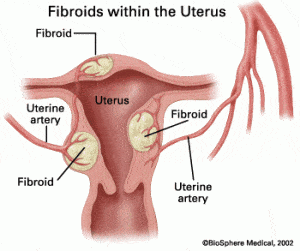 Professor Tin-Chiu Li has spent the last 20 years studying the impact of fibroids on recurrent miscarriages. During this time, he made some groundbreaking discoveries, some of which may help many women that suffer from recurrent miscarriages.
Professor Tin-Chiu Li has spent the last 20 years studying the impact of fibroids on recurrent miscarriages. During this time, he made some groundbreaking discoveries, some of which may help many women that suffer from recurrent miscarriages.
Recurrent miscarriages can be devastating to women trying to conceive. Depression, anxiety and stress can all result from multiple miscarriages. These women may also be at higher risk for certain health conditions like a higher risk of heart attacks. For years, doctors have tried to understand the causes of multiple miscarriages and it seems there may be a bit of a breakthrough.
It has been suspected for some time now that fibroids played a role in spontaneous miscarriages but no evidence existed to support this theory. Researchers had no data on how many women with fibroids had recurrent miscarriages. It was also unknown whether removing the tumors would produce a positive outcome in future pregnancies.
Researchers analyzed data from 966 women that had attended the Sheffield RM clinic for recurrent miscarriages. Each woman was checked for uterine abnormalities with the help of a transvaginal ultrasound. Of the women who attended the clinic, 79 were found to have fibroids.
“This enabled us to calculate that the prevalence of fibroids was 8.2% among women with recurrent miscarriages; this has never been accurately reported before,” said researcher Dr. Sotirios Saravelos, fellow researcher at the University of Sheffield.
Types of fibroids were classified into three different groups: submucosal – found in the muscle beneath the inner lining of the uterus and distorts the uterine cavity, intramural – found in the muscle wall of the uterus and did not distort the uterine cavity and subserosal – found outside of the uterine wall into the pelvis and did not distort the uterine cavity.
Intramural fibroids were found to be the most common and 54 women total had the tumors that did not distort the uterine cavity. Cavity distorting fibroids were found in 25 women total. All 25 underwent surgery to have them removed. None of the other women received surgery but all women that attended the recurrent miscarriage clinic received treatment in the way of psychological supportive care.
Of the women that received surgical intervention for their miscarriages, second trimester miscarriage rates dropped from 21.7% to 0%. Live births among this group of women increased from 23.3% to 52%.
“This is the first time that it has been shown that removing fibroids that distort the uterine cavity may increase the chances of a subsequent live birth in women with recurrent miscarriages,” said Dr. Saravelos.
But women that received surgical intervention weren’t the only to see an increase in live births. Women that received only psychological supportive care also saw a reduction in miscarriage rates – 17.6% to 0%. Live birth rates were increased form 20.6% to 70.4%.
“These results are interesting because they suggest that the finding of fibroids in women with recurrent miscarriage does not necessarily imply that the fibroids are the only cause of the miscarriage. In addition, they suggest that surgical intervention is not the only means whereby patients with recurrent miscarriage benefit from attending a specialized, dedicated clinic.”
“It has been recognized since the 1980’s that women with unexplained recurrent miscarriage have very good pregnancy outcomes following referral to a dedicated clinic without the need for any intervention, and with psychological supportive care, i.e. tender loving care, alone. This usually takes the form of regular visits to a dedicated recurrent miscarriage clinic, regular antenatal scans to check the condition of the baby, reassurance to the mother from the specialist that everything is progressing well and specialist antenatal counseling throughout the pregnancy,” said Dr. Saravelos.
He did admit that the study has limitations and that randomized controlled testing would need to be done to confirm the validity of the results. All women with fibroids that altered the uterine cavity had surgical intervention. According to Dr. Saravelos, future studies would need cooperation from several recurrent miscarriage clinics and that the success of the studies, “would depend on the support of all clinics along with that of Sheffield.”
Related Articles:
- New Study Links Infertility Issues and Compromised Embryo Development to Fat Found in Ovaries
- Twin Saves Sibling’s Life in the Womb
- Gum Disease Can Extend the Time it Takes to Conceive
SOURCE
{PHOTO WOMENSHEALTH.ORG}






